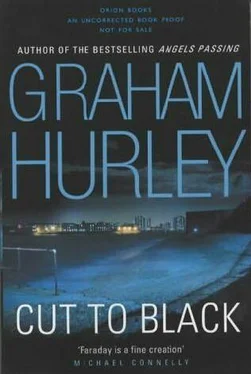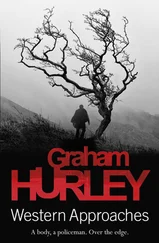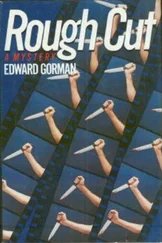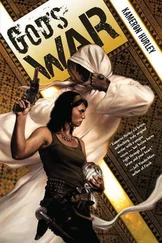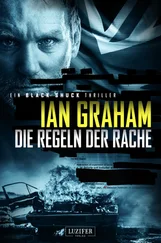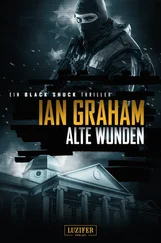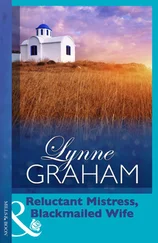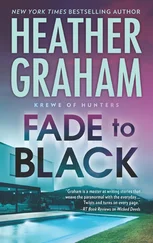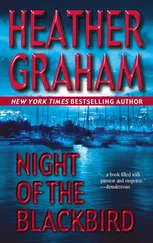Graham Hurley - Cut to Black
Здесь есть возможность читать онлайн «Graham Hurley - Cut to Black» весь текст электронной книги совершенно бесплатно (целиком полную версию без сокращений). В некоторых случаях можно слушать аудио, скачать через торрент в формате fb2 и присутствует краткое содержание. Жанр: Полицейский детектив, на английском языке. Описание произведения, (предисловие) а так же отзывы посетителей доступны на портале библиотеки ЛибКат.
- Название:Cut to Black
- Автор:
- Жанр:
- Год:неизвестен
- ISBN:нет данных
- Рейтинг книги:5 / 5. Голосов: 1
-
Избранное:Добавить в избранное
- Отзывы:
-
Ваша оценка:
- 100
- 1
- 2
- 3
- 4
- 5
Cut to Black: краткое содержание, описание и аннотация
Предлагаем к чтению аннотацию, описание, краткое содержание или предисловие (зависит от того, что написал сам автор книги «Cut to Black»). Если вы не нашли необходимую информацию о книге — напишите в комментариях, мы постараемся отыскать её.
Cut to Black — читать онлайн бесплатно полную книгу (весь текст) целиком
Ниже представлен текст книги, разбитый по страницам. Система сохранения места последней прочитанной страницы, позволяет с удобством читать онлайн бесплатно книгу «Cut to Black», без необходимости каждый раз заново искать на чём Вы остановились. Поставьте закладку, и сможете в любой момент перейти на страницу, на которой закончили чтение.
Интервал:
Закладка:
Willard had spent most of the afternoon with Terry Alcott, the Assistant Chief Constable in charge of CID and Special Operations.
Alcott had a place in the Meon Valley, and had evidently abandoned his day's fishing to survey the smoking ruins of Tumbril.
Willard had phoned Faraday just after four with a series of preliminary decisions. He wanted full statements on the lunchtime meet from Wallace, McNaughton and Faraday himself. The offices on Whale Island were to be sealed and guarded, absolutely no one permitted entry.
Faraday was to make the arrangements with the MoD police, and further ensure that the Tumbril team Imber, Prebble and Joyce were to be turned away at the guardhouse when they appeared tomorrow morning at Whale Island. Willard wanted all three in his office at Kingston Crescent for half nine.
On the phone, Willard had been businesslike, almost abrupt. Whatever happened next, the consequences of the lunchtime meet at the Solent Palace were brutally clear. This investigation was no longer about Bazza Mackenzie but about Tumbril itself.
To his own surprise, Faraday felt almost relieved. From the start, less than a week ago, he'd been bounced into this sealed-off world where nothing was quite what it seemed. Every conversation, Faraday realised, had been governed by an uneasy sense of who knew what. Every phone call became another piece of the jigsaw to be locked away and assessed before anyone else took a look. Most investigations, in Faraday's experience, relied above all on teamwork. Without the support of the blokes around you, any major inquiry was dead in the water. But Tumbril turned that kind of automatic, instinctive kinship on its head. In the course of four short days, trust had become a currency to be spent with extraordinary care.
Faraday had hated it. On one level, he'd understood why Willard had fenced Tumbril off, and then built fire walls within the operation itself. "Need to know' was rule one for every security service in the world, and there were decent coppers, people like Nick Hayder, who thrived on it. Yet to Faraday, this kind of MO tight-fisted, calculating, cold fed a paranoia that ended up tainting everything. You didn't know who to confide in, who to bounce ideas off. Your hands were shackled by the constant anxiety that a misplaced word or creature misht blow an entire year's work. These were pressures that it took someone very special to withstand, and Faraday now understood why even Nick Hayder in the weeks before his accident had begun to buckle.
What would happen next? Lawyers at the Crown Prosecution Service would clearly have a view, and that would probably govern the immediate days ahead, but beyond the CPS lay deeper family issues that the force itself would have to confront. Willard was right. Tumbril had been comprehensively blown. Someone within the tight inner circle had been feeding Mackenzie information. Maybe for money. Maybe for advantage.
Maybe in revenge for some private slight. Whatever the motive, it represented the deepest possible wound to an organisation that relied on at least a measure of mutual trust.
Some form of internal inquiry, Faraday thought, was the likeliest outcome. A senior officer from the Professional Standards Department would probably be tasked to piece together the debris that was Tumbril, and deduce who, exactly, had lit the fuse. But that exercise, in itself, was fraught with fresh problems. Rumours of Tumbril's existence had already ruffled feathers, CID especially, and confirmation of this ultra-covert operation would further sour those who already regarded themselves as pariahs, un trusted by senior management.
Tumbril's post-mortem would probably last for months. People would start talking. A corporate itch would become an open sore. How come these guys get half a million to squirrel themselves away when we have problems with a night's overtime? And how come such clever fuckers let everything turn to rat shit? Faraday could imagine the gleeful, embittered exchanges in divisional CID offices across the force. Even fellow DIs, foot soldiers in the war against volume crime, would probably have a dig.
The prospect, all too likely, filled Faraday with gloom, and as the light drained from the Solent, he paused in the lengthening shadows of the fun fair to take stock. To date, his contribution to Tumbril had been less than distinguished. Maybe now, he thought, was the time for some serious detective work.
Fort Nelson straddled the crest of Portsdown Hill, one of a series of low, red-brick fortifications that ringed the great Victorian arsenal of Portsmouth dockyard. From up here on top of the hill, the geographical facts that had shaped Pompey's turbulent past were easy to grasp. The busy spread of the city below was mapped in a thousand street lights and the southward jut of the island was defined by the blackness of the encroaching sea. Getting out of his car and gazing out, Winter could visualise the three offshore forts that had sealed Spithead and the harbour approaches from the threat of French invasion.
If you ever needed an explanation for Pompey's insularity, for the city's determination to turn its back on the world, then here it was. A place apart, thought Winter. The perfect excuse for a lifetime on the piss and centuries of recreational inbreeding.
He found Harry Wayte inside the Artillery Hall, a cavernous showcase for hundreds of years of military hardware. The DI was standing beside an impressive-looking field piece, deep in conversation with an elderly man in a Barbour jacket. The hardwood of the cannon and its limber was inlaid with decorative brass. Winter was still reading the accompanying panel when Harry at last stepped over.
"Souvenir from the Sikh Wars." He nodded at the gun. "Where would we be without India?"
"Still eating crap food." Winter extended a hand. "Why haven't I been here before?"
"You tell me. There's a little tour after the play. I'd take it if I were you."
A modest audience was already seated at the far end of the hall. Harry Wayte showed Winter to a reserved row of seats at the front. It was chilly in the hall and Winter was wondering about nipping back to the car park for his coat when a young actor stepped onto the semicircle of scuffed boards that served as a makeshift stage. Dressed in knee breeches and a collarless shirt, he sank into a solitary chair, gazed round, and then produced a letter.
"Where's the rest of them?" Winter had beckoned Harry closer.
"It's a monologue. Just him."
"He's talking to himself?"
"That's right." Harry smiled. "Ring any bells?"
The piece lasted about half an hour. Winter, whose appetite for drama rarely extended beyond repeats of Heartbeat, found himself curiously sucked in. It was 1870. The lad was part of Fort Nelson's garrison, a clerk at a Southsea bank and a part-time volunteer soldier. Three weeks in high summer found him up here on guard duty, protecting Portsmouth against a French threat that was fast disappearing under the fury of a Prussian invasion.
News of this sudden conflagration had reached Fort Nelson through the pages of the Illustrated London News, and young Trooper Press had read the battlefield dispatches with immense envy. The French, he wrote to his fiancee, were defending the motherland with their usual vim, pressing home counter-attack after counter-attack with cavalry, the sabre and the bayonet. The Prussians, it had to be said, were doing rather well in their grey, methodical way but the whole world applauded the fearless French cuirassiers with their dash and their madcap courage. Better this style of warfare, he concluded, than living like a mole for weeks on end, poking your nose out occasionally to check whether any spare Froggies had made it over the Channel.
Twice during the performance, Winter stole a look at Harry Wayte. The DI seemed entranced by this little drama, nodding his head from time to time as if in agreement. A lengthy aside about the relentless advance of the Prussian Guard at St-Privat brought a particular smile to his ravaged face. "The Prussian is trained to be a little shoo ted as he goes forward," mused Trooper Press. "He develops a keen appreciation for bullet music' "Bullet music?" The performance was over and Winter was on his feet, stamping the warmth back into his legs.
Читать дальшеИнтервал:
Закладка:
Похожие книги на «Cut to Black»
Представляем Вашему вниманию похожие книги на «Cut to Black» списком для выбора. Мы отобрали схожую по названию и смыслу литературу в надежде предоставить читателям больше вариантов отыскать новые, интересные, ещё непрочитанные произведения.
Обсуждение, отзывы о книге «Cut to Black» и просто собственные мнения читателей. Оставьте ваши комментарии, напишите, что Вы думаете о произведении, его смысле или главных героях. Укажите что конкретно понравилось, а что нет, и почему Вы так считаете.
